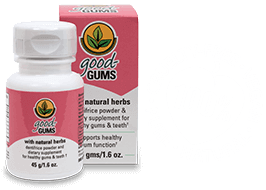Vitamin C – You Can’t Live Without It!

What do we share
with our Simian Cousins?
We don’t synthesize glucose into Vitamin C like most mammals
Many, many generations ago, a mutation occurred in a gene of our human ancestors that prevents the synthesis of the active enzyme protein, L-gluconolactone oxidase (GLO). Therefore our liver doesn’t synthesize glucose into Vitamin C like most mammals. Humans, the apes, Old World and New World monkeys, guinea pigs, and bats are the only mammals that don’t produce their own vitamin C. So we must make sure that we get enough essential Vitamin C from our diet and supplements.
Vitamin C is an essential nutrient for so many bodily processes, it…
- is essential to all cell growth and replacement
- metabolizes protein
- is an important antioxidant
- regenerates other antioxidants in the body, such as vitamin E
- plays a critical role in immune functions
- assists in the absorption of nonheme iron – the iron found in plant-based foods
- is used in the biosynthesis of collagen, L-carnitine, and some neurotransmitters (collagen is a major component of connective tissue which includes bones, blood vessels, and skin and is essential for wound healing)
Without C, we perish.
Since humans do not synthesize Vitamin C and because it is water soluble what our body does not use is eliminated through urine and not stored for future use. This means we must constantly ingest Vitamin C through our diet and/or supplements to assure that all of the functions in our body that it assists can run smoothly.
Why is this goat Smiling?

There are no worries for this goat getting enough Vitamin C. An average sized 155-pound goat naturally synthesizes 13,000 milligrams daily. If a goat is stressed or subject to toxins the production increases 8 fold to 104,000 milligrams. How efficient!
How much Vitamin C?

The current Recommended Dietary Allowance (RDA) of Vitamin C for adult men is 90 mg/day and 75 mg/ a day for women. To calculate the RDA, Vitamin C was withheld from test subjects until they started to show symptoms of scurvy. Two of the first symptoms of scurvy are bleeding gums and loss of teeth and the disease is caused entirely by a lack of Vitamin C.
Experts debate if waiting until the test subjects exhibited signs of scurvy was an accurate way to determine the RDA for Vitamin C for a healthy human and therefore think the RDA should be higher. There are many opinions of exactly what the daily requirement should actually be, with experts such as the Linus Pauling Institute recommending 400 mg/day and the Vitamin C Foundation 3,000 mg/day.
Additional Vitamin C is required when the body is under stress, fighting disease, or coping with a compromised immune system (so follow the old advice and have a glass of orange juice when you first have symptoms of a cold or virus.)
How does this relate to oral health?

Connective tissues hold your gums tight to your teeth and your teeth to your jaw. The cells of the entire mouth lining, including gums, and the surface of your tongue and cheeks are replaced every few hours. Gums and taste buds are renewed entirely every two weeks. Consequently, the rapid cell replacement and connective tissues working in your mouth must have Vitamin C to function. It also aids in fighting receding gums and sensitive teeth.
Vitamin C is effective at fighting bacteria and toxins. Bacteria is the first step in plaque and tartar formation that can lead to periodontal disease. The Journal of Orthomolecular Medicine cites studies that looked at brushing frequency and vitamin C. Individuals brushing once a day with high vitamin C levels had less plaque than those who brushed twice or more daily, but had low levels of vitamin C.
What are the best sources?

Whatever you decide is a sufficient amount of Vitamin C for your personal daily intake, a healthy, balanced dietcontaining a variety of fruits and vegetables is the best way to get it.
Foods High In Vitamin C
- Red Bell Peppers
- Strawberries
- Broccoli
- Brussels Sprouts
- Papaya
- Pineapple
- Oranges
- Kiwi Fruit
- Cauliflower
- Cantaloupe
- Kale
Good-Gums is another excellent source of the essential Vitamin C and can be absorbed directly by gum tissue. The Vitamin C used in Good-Gums is all natural and stringently tested for strength, quality, and purity.
Subscribe To Our Newsletter
Be the first to receive all our news, offers and natural oral health tips and articles.


